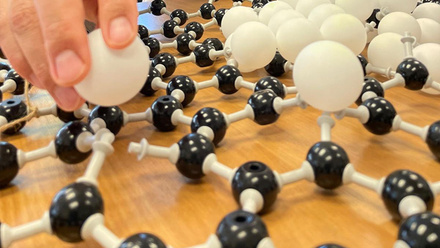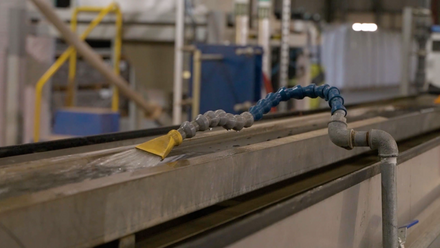World-first analytical transmission electron microscope being developed
Scientists at the University of Manchester, UK, are developing a world-first transmission electron microscope (TEM) that integrates artificial intelligence and automated workflows.

The AutomaTEM development is funded through a £9.5mln project supported by the University, The Henry Royce Institute, bp and EPSRC, in collaboration with manufacturer Thermo Fisher Scientific.
The Manchester team, led by Professor Sarah Haigh, will merge TEM’s existing atomic-scale elemental and chemical mapping capabilities together with emerging developments in automation and data analysis to create an instrument that can acquire huge datasets of local chemical information in days rather than years.
The time-consuming nature of existing TEMs means the typical regions of interest (ROI) - areas of the sample selected for further analysis - are limited.
The AutomaTEM will seek to resolve this, by improving the ability to find and analyse, reducing time incurred while increasing the ROI.
As a result, it it is hoped it will accelerate innovation in materials applications for quantum computing, low-power electronics and new catalysts to support the energy transition.
Professor Sarah Haigh says, 'This system is not simply another TEM instrument. It will provide new opportunities for atomic-scale investigation of materials with less human intervention. For the first time we will be able to perform atomic resolution analysis of hundreds of regions of interest in a matter of hours, providing unprecedented insights into sparse defects and heterogeneous materials.'
The AutomaTEM will be housed at the University's Electron Microscopy Centre. When ready, AutomaTEM will be available to external users for free proof-of-principle academic projects for up to 30% of its total use during the first three years to help foster collaboration and advance research capabilities.




